8000 Years of Water Civilisations in Turkey
(20.05. - 29.05. 2011)
Mehmet Bildirici, Bahar Suseven,
Thomas Schmitz
for G.A.S.-Der, in the framework of the REMEE Project
“Rediscovering together the Heritage of Water in the Mediterranean”
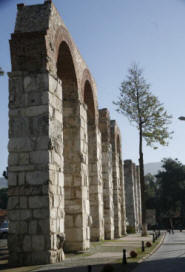 Water… without it no human settlement, no technical
development, no life is thinkable. In Turkey the potential of water
was known even 8000 years ago, when the first structures were built
and developed to “tame” water into a useful source for human
purposes. Dams and barrages for flood protection, irrigation canals,
whole water systems- the traces of these very early engineering
accomplishments are still standing today and we have to admire their
thoughtful constructions and functionality. Water… without it no human settlement, no technical
development, no life is thinkable. In Turkey the potential of water
was known even 8000 years ago, when the first structures were built
and developed to “tame” water into a useful source for human
purposes. Dams and barrages for flood protection, irrigation canals,
whole water systems- the traces of these very early engineering
accomplishments are still standing today and we have to admire their
thoughtful constructions and functionality.
Through time and millennia water related engineering became
more and more refined and more and more important. Water had to be
kept, cisterns and depots were built, one of them the cathedral like
magnificent Yerebatan Cistern in Istanbul. The energy of some
streams had to be broken by flood gates and terraces, other places
required the equilibration of water by water scales, like the famous
water scales of Kadıköy in Istanbul. Water had to be carried over
far distances and the first water bridges and aqueducts were
constructed, like the Polio Aqueduct in Ephesus. Irrigation canals
became more intricate and durable, like the Urartu “Kheriz” canals
in the vicinity of Van, which are still in use today!
Most of these structures used gravity and other simple
principles of physic and hydraulic. With the understanding of
pressure hydraulics and the production possibilities for the right
watertight materials for pipes and systems technique changed and
opened the gate for yet different structures. Later followed the
development of simple water driven machines, mills, saw mills, looms
and other basic mechanical inventions; then the discovery of water
heated power and the first steam driven machinery, the era of
industrial revolution.
Water was and still is literally the driving force of power
in human development.
Nowadays with the capacity of using different industrial
sources, many of these first inventions are forgotten, not thought
of any longer as the miracles of invention and innovation they once
have been.
The REMEE Project was developed and implemented to
“Rediscover the Heritage of Water in the Mediterranean”. This
framework gave us, G.A.S.-Der, the incentive to compile the
expertise and passion for water and water related constructions of
two very enthusiastic specialists for the subjects of water, Mehmet
Bildirici and Bahar Suseven and Thomas Schmitz, whose computer
skills were indispensable to collect, digitalise and optimise the
research results of these two experts.
This exhibition takes us on a journey from the beginnings of
water construction up to recent historical water related techniques,
giving us the possibilities to “rediscover the heritage of water” in
Turkey, linking our present to a precious past, that should not be
forgotten.
|
Pics of the opening
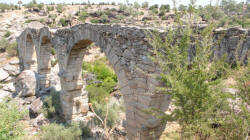
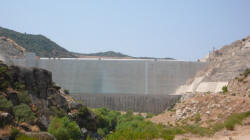
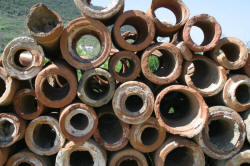
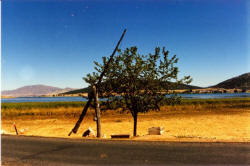
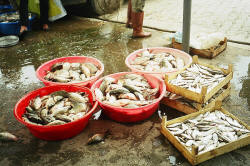 |